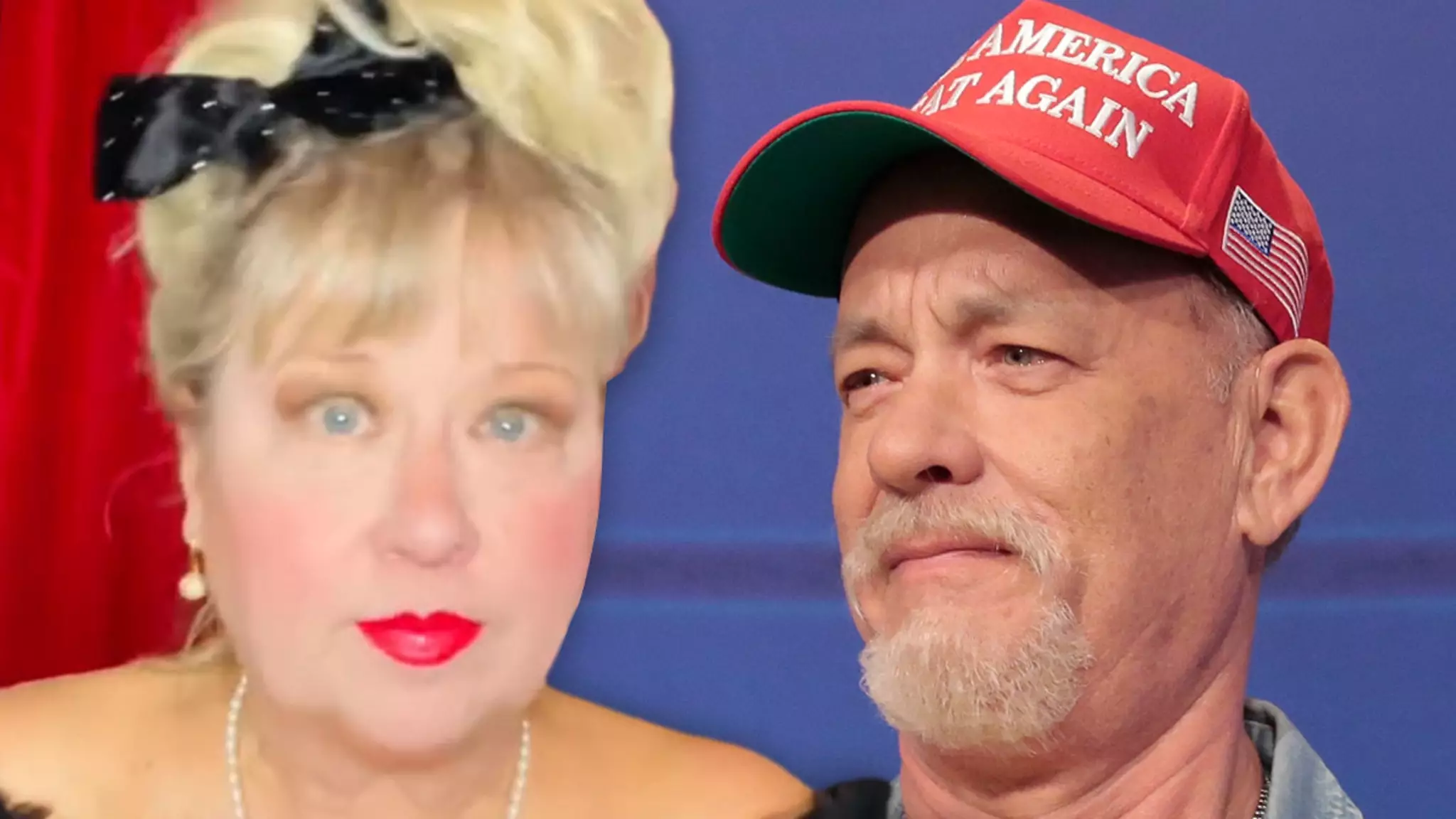Tom Hanks, the beloved Hollywood actor known for his charm and versatility, has inadvertently ignited a firestorm of controversy after his recent appearance on “Saturday Night Live” (SNL). In a skit aimed at lampooning Trump supporters, Hanks found himself at the center of a political and social debate, showcasing just how polarized public sentiment has become. His humorous take, however, did not land well with everyone, drawing ire from former SNL cast member Victoria Jackson, who publicly expressed her discontent.
Victoria Jackson, who was a prominent face on SNL during the late 1980s and early ’90s, has since established herself as a vocal Trump supporter. In a recent interaction with media outlet TMZ, she condemned Hanks’ portrayal of Trump supporters in the skit, labeling it “stupid.” Jackson’s comments were underscored by her assertion that the show has a tendency to identify Trump supporters with negative stereotypes, particularly the notion that all supporters are inherently racist—a sentiment echoed by political commentator Link Lauren.
Lauren described Hanks’ skit as “downright disgusting,” emphasizing the impact such portrayals can have on public perception. Jackson aligned herself with Lauren’s critique, asserting that such narratives contribute to a divisive atmosphere and indicated that they might be a reason behind the decline in SNL’s viewership. This glimpse into Jackson’s perspective illustrates not only her disappointment in Hanks’ humor but also a broader concern regarding the state of political discourse in comedy.
At the heart of this controversy lies a critical examination of how comedy interacts with political dialogue. Comedy has often served as a mirror reflecting societal attitudes, yet when it begins to generalize or caricature entire groups, it risks alienating audiences. Hanks’ skit, while meant to be humorous, was interpreted by some as perpetuating harmful stereotypes about Trump supporters, leading to defensive reactions from individuals like Jackson, who feel misrepresented.
Moreover, Jackson’s quip about whether SNL has ever poked fun at Kamala Harris supporters points to a perceived imbalance in political satire on the show. This highlights the complex landscape of comedy in today’s world, where perceived bias can trigger backlash that resonates across various demographics. When a show that once thrived on the diversity of comedic voices begins to settle into predictable patterns, it risks losing the very audience it aims to entertain.
The fallout from Hanks’ performance will likely have lasting implications for both him and SNL. With audiences increasingly scrutinizing the nuances of political humor, Hanks may need to reconsider how he addresses such sensitive topics in future performances. Moreover, this incident serves as a cautionary tale for SNL and similar platforms about the repercussions of wielding humor as a tool for political commentary.
The controversy surrounding Tom Hanks’ SNL appearance underscores the delicate equilibrium required in comedy when navigating today’s politically charged climate. While humor can stimulate discussion and critique, it must be carefully crafted to avoid reinforcing harmful stereotypes that divide rather than unite. The lessons gleaned from this situation may shape the future of political humor, pushing creators to engage in more thoughtful representation.

Leave a Reply